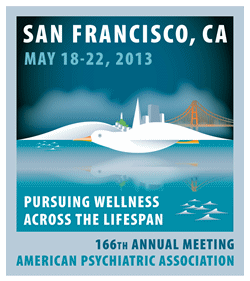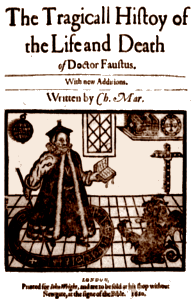 Looking through the Preliminary Program for the American Psychiatric Association meeting in San Francisco next month was not exactly a trip down memory lane for me, though it reminded me of a former time. There was a time when I would look over such a program with excitement about what sessions I might go to. This time, there was one slight spark. Dr. Irvin Yalom, author of a bible on Group Therapy and a later favorite, Existential Psychotherapy, is speaking on The Teaching Novel: The Spinoza Problem. I have no idea what that talk is about, but I’d go hear him about almost anything. Beyond his lecture, not much grabbed me. I recognized several names from those guest multi-author papers that fill the literature:
Looking through the Preliminary Program for the American Psychiatric Association meeting in San Francisco next month was not exactly a trip down memory lane for me, though it reminded me of a former time. There was a time when I would look over such a program with excitement about what sessions I might go to. This time, there was one slight spark. Dr. Irvin Yalom, author of a bible on Group Therapy and a later favorite, Existential Psychotherapy, is speaking on The Teaching Novel: The Spinoza Problem. I have no idea what that talk is about, but I’d go hear him about almost anything. Beyond his lecture, not much grabbed me. I recognized several names from those guest multi-author papers that fill the literature: -
Dr. Maurizio Fava [Effect of L-Methylfolate on Maier Subscale Scores in a Randomized Clinical Trial of Patients With Major Depression]
-
Dr. Michael Thase [Metabolic Adverse Effects of Adjunctive Treatments and Depression]
-
Dr. Charles Schulz [Youth Psychiatry: Helping a Person With First-Episode Schizophrenia to Adulthood and Treatment Strategies for the Person With Mid-Stage Schizophrenia].
-
Dr. Charles Nemeroff [Heartache and Heartbreak: Depression and Cardiovascular Disease and Personalized Medicine: Aging and Psychiatry]
-
Dr. Joseph Biederman [Further Evidence for Robust Familiality of Pediatric Bipolar I Disorder; Do Stimulants Reduce the Risk for Cigarette Smoking in Youth With ADHD? A Prospective, Long-Term Open-Label Study of OROS Methylphenidate; and A Unique Profile of the Child Behavior Checklist Clinical Scales Helps Identify Autism Spectrum Disorder in Clinically Referred Youth]
-
Dr. Thomas Spencer [Functional Genomics of ADHD Risk Alleles on Dopamine Transporter Binding in ADHD and Healthy Controls and Examining the Nature of the Comorbidity Between Pediatric Attention-Deficit/Hyperactivity Disorder and Posttraumatic Stress Disorder]
-
Dr. Alan Schatzberg [Essentials of Psychopharmacology – Meet the Authors and Cortisol and Cognition in Major Depression]
-
Dr. Martin Keller [he was listed on an earlier version talking about Unipolar Depression, but not on this later version]
 At the last meeting, they had Aaron Beck, the father of Cognitive Behavior Therapy. This time it’s Irvin Yalom. These are icons from a former time, the time when I would have been looking over the program to see which of the talks I wanted to attend – to hear people who had found ways of looking at things that separated them from the pack, things that would add to the mix of my own understanding. When I look over the people I listed above, I recognized their names for a different reason. They are Key Opinion Leaders [so designated by industry] distinguished in a much different way – people who made Faustian bargains rather than trying to understand the tragedy of Dr. Faustus. Instead of writing books that inspired, many signed on to ghost-written industry generated articles about trivial Clinical Trials that clog rather than enrich our journals.
At the last meeting, they had Aaron Beck, the father of Cognitive Behavior Therapy. This time it’s Irvin Yalom. These are icons from a former time, the time when I would have been looking over the program to see which of the talks I wanted to attend – to hear people who had found ways of looking at things that separated them from the pack, things that would add to the mix of my own understanding. When I look over the people I listed above, I recognized their names for a different reason. They are Key Opinion Leaders [so designated by industry] distinguished in a much different way – people who made Faustian bargains rather than trying to understand the tragedy of Dr. Faustus. Instead of writing books that inspired, many signed on to ghost-written industry generated articles about trivial Clinical Trials that clog rather than enrich our journals.
We are at the 10 year anniversary of two major wars involving a million soldiers. It was our first all-volunteer army experience. It involved kids signing up for multiple tours. These were wars with epidemic suicides in our own troops, and wars where combat soldiers were "on meds." If you scan the APA Preliminary Program for PTSD, there are multiple sessions about matters neuro-biological, a few on symptomatic treatments: But one wonders if anybody talked to these soldiers and found out anything we might need to know when they show up in our offices in the future, or found out what spending young adulthood in chronic combat in a desert does to one’s world view, or studied the effects of living in an environment where trucks, roads, and other people are all potentially lethal bombs.
hope you have seen this
MENTAL NOTES
Letter to a Foreign Psychiatrist
By Seyyed Nassir Ghaemi, MD, MPH | April 11, 2013
“Honest American psychiatrists know and admit that DSM, by simplifying psychopathology and diagnosis to a bare minimum of criteria, has ruined a generation of clinicians who haven’t heard of anything not included in the manual and whose knowledge of the manual itself is limited to baldly described criteria. A few years ago, Nancy Andreasen, a force in DSM-III, admitted that phenomenology—the field of careful attention to symptoms, the kind of work Ey exemplified—had literally been killed by DSM-III.1 This is like a cardiologist who can no longer discern heart sounds, or a neurologist unable to use a reflex hammer.”
http://www.psychiatrictimes.com/mood-disorders/content/article/10168/1642824. Accessed March 1, 2013.
Jazmo references “letters to a foreign psychiatrist” from 2013. Clicking on the link provided actually takes you to “couch pragmatism” from 2010, from the same author.
The 2010 article is worth just as much of a read as the 2013, though the authors views in the former are likely to be less favored by the readers of this blog. Especially in the examples he employs around bipolar disorder.
It seems important to note that he is making the comments in the 2013 article in the context of those in the 2010 article that just happens to have been transposed in the link in Jazmo’s post:
In 2010 the author argues that the question of whether many more people end up medicated, and on what kind of medications, is secondary.
“A critic may say these studies have problems X, Y, and Z. Fine. All studies have limitations, but this does not mean that all data are useless. Show me studies C and D to refute A and B. Otherwise, studies A and B will be the best evidence we have, and no one’s personal opinions should be seen as more correct than those data.”
It is an interesting question as to whether that should be secondary.
Wow! I’m glad I found you. I had an experience at a medical treatment center where a crna diagnosed “anxiety” without my knowledge. Call me crazy, but I never noticed any “anxiety” at all. He must have been a psychic. Anyway, the upshot was I got a healthy dose of Versed/Midazolam, for anxiety I never felt. Until the injection, THEN I got anxiety, without the desired (by him) amnesia. Since then I have apparently contracted PTSD. I am fascinated with brain function and chemistry now. I think it’s unhealthy, but jeez I can’t stop myself. I can’t believe that medical minions use a brain disabling and (hopefully) amnestic drug like this without regard for post injection brain function. Especially for some abstract and specious reason like “anxiety” of the type not recognized by the alleged sufferer. I’m still angry over this, all these years later. We need to stop mid level providers from arbitrarily and capriciously diagnosing “anxiety” as a ruse to inject people with brain poison.
For example, antidepressant induced mania indicates that you have bipolar disorder. Where are studies C and D that refute that? Whatever the personal opinions of clinicians and others here?
“I think I was looking for a sign of the good new days, and came up empty-handed…”
Pay close attention to the examples that the picks after he says:
“Which timeline had the greatest practical results? Without Osler’s clinical detail and scientific rigor in diagnosis, the antibiotic revolution would not have been so easily applied to medical practice. Think about it: we have plenty of drugs in psychiatry, but we do not seem to know which patients should get them, and which should not. Some of us use them practically indiscriminately; others hardly at all—depending on our personal tastes, or the preferences of our patients. We boomerang between pharmaceutical libertinism and puritanism. Because of the “pragmatic” approach, we have been doomed, for an entire generation, to failure in biological and treatment studies. No wonder, when one realizes that DSM-IV was specifically and consciously designed to satisfy the personal views of its writers as to what is harmful, rather than to try to match up reasonably well to nature or to our knowledge of disease.”
At the bottom it looks like there is a link to a rebuttal by Frances.
There is also a quote down in the comments from Pies:
“In short: absent clear and convincing empirical evidence of harm associated with a given change in diagnostic criteria, we need to go where the best science leads us. –Ron Pies”
If studies can never trump opinion then it is difficult to see how to move forward.
At the same time we keep seeing the term “science” flogged over and over again by people like Drs. Pies, Dulcan, …etc in the service of what seems more like opinion. And, as a way to stifle dissent.
” I think I was looking for a sign of the good new days, and came up empty-handed…,”
Where those good new days are going to come from is not clear.
It’s Irvin Yalom, not Irving. And most people know him as Irv Yalom. Presumably his talk is about his new novel. It’s nice that he does not try to pass off his fiction work as nonfiction, unlike many of the KOLs today. Though I’m not sure how much fiction exists in some of Dr. Yalom’s nonfiction books like Love’s Executioner.
Dr. Yalom’s fiction always has this dense echo chamber quality to it to me — no room for subtext, and little too “Freud and Nietzsche sitting in a tree, t a l k i n g” for my taste. But Love’s Executioner was a lovely book — there is more depth when he isn’t filling in both sides of the conversation. In that sense, it may well be better literature. And I don’t think that it was presented or taken as clinical non-fiction, though I could be wrong.